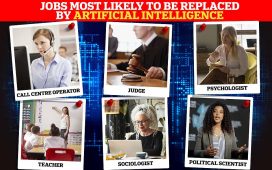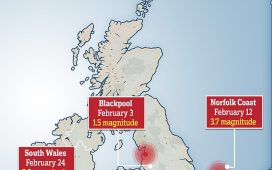[ad_1]
Offices empty, restaurants and cafes closed, performance venues dark, schools and universities shut down. Across the world, numerous industries have entered a state of suspended animation, imposing a sharp and involuntary brake on the working lives of millions of people.
This week, having moved my psychoanalytic practice online, I’ve sat in an empty consulting room talking to patients via video-conference, many of them struggling to process what life in the shadow of Covid-19 might mean in the short- and longer-term. Some are lamenting the lost sense of belonging they derive from their workplaces, as well as the claustrophobia of being shut in with partners and children.
For others, the fear is more immediate: oneself or a loved one becoming ill and unable to work, the demise of a business, the contraction or total erosion of a livelihood. And lurking behind all these grim prospects, ensuring I’m not immune from this rapid contagion of anxiety, is the possibility that my psychoanalytic practice may be sacrificed to this grim new financial reality.
My interest in the question of how to live without work lead me to write a book on the topic. I discussed clinical cases, as well as lives of major artists and thinkers, that spoke to the importance of renewing contact with our neglected inner lives and letting our minds roam without the imperatives of productivity or purpose dogging every moment. I asked how we could loosen the grip of the centuries-old ethic that ties our sense of self so inextricably to our work.
In thinking about a world without work, I had in mind a future of automation and AI, rather than the unthinkable shock of a global pandemic. I followed Oscar Wilde in The Soul of Man Under Socialism and tried to imagine life unburdened by the yoke of necessity. Now, Wilde’s vision of a society freed by automation to realise its creative potential is a painful contrast to the workless reality being foisted on millions.
Under very different conditions, we could imagine a period of life without work as the most precious of gifts – the chance to live at our own pace and rediscover the pleasures and possibilities of free, aimless time. But this can only be the case when work ceases to be a matter of survival and when its loss doesn’t plague us with anxiety, depression and sleeplessness. The virus, in other words, is throwing into stark relief an obvious yet suddenly treacherous fact of life today: we depend on work.
This dependence is partly a matter of survival; nothing is more liable to arouse a sense of helplessness than the threat of poverty or hunger. But beyond survival, work shapes our sense of self. The thought of being without it induces existential terror. “I’m scared of the loss of income, for sure,” a woman with a suddenly precarious job in the arts said to me recently, “and obviously my health. But I’m more scared of losing myself.”
It’s a fear many will share. With the lockdown, it seems we’ve lost the routines that give substance to our lives. Need this mean losing ourselves? I’d like to believe that this period could help us discover new creative resources within ourselves, a thought that takes me to the unlikely figure of Xavier de Maistre, a French aristocrat who in 1790 spent 42 days under house arrest in Turin, Italy, for duelling with an officer.
De Maistre whiled away the hours of solitude by writing a journal of his confinement, A Journey Around My Room, which takes us on a strange journey across the walls and floor of his bedroom. He envisioned this motionless travel as a kind of radically democratic tourism, requiring no disposable income or gratuitous effort. In words that take on an eerily hopeful resonance at this moment, De Maistre insists that the Turin authorities “may have forbidden me to travel through a city, one place, but they left me the entire universe: infinity and eternity are at my command”.
But in these times, even the most insulated of us can’t be De Maistre. Even if we enjoyed similar financial privilege, we lack the comfort that the world we return to when our own house arrest is over will be as it was when we left it. And, of course, most of us enjoy no such privilege. Our reveries in front of our bedroom walls are bound to be disturbed by fears for the future – both ours and the world’s.
What if those fears and concerns for others could help fuel a different kind of imaginative transformation? If we can’t, like De Maistre, withdraw into the peaceful cell of our own daydreams, we can (assuming we’re well enough) channel our creativity into refreshing our neglected social and emotional bonds.
Think of those offers of help being popped into neighbours’ letterboxes, those helping at food banks, the thousands of NHS volunteers, or the Help Hub psychotherapy project, originating in Oxford and now offering free online sessions to those in need of human contact and solidarity. In a recent session, a patient who had signed up to at least one of these initiatives spoke of “a miraculous outbreak of community-mindedness”. “It’s not just about being good,” he said, “it’s about realising how helpless you feel, and taking back a bit of control.” Weeks ago, I’d never have imagined I’d hear that phrase again and feel warmed. But that, after all, is a lifetime ago.
-
Josh Cohen is a professor of modern literary theory at Goldsmiths, University of London, and a psychoanalyst in private practice
[ad_2]
READ SOURCE





